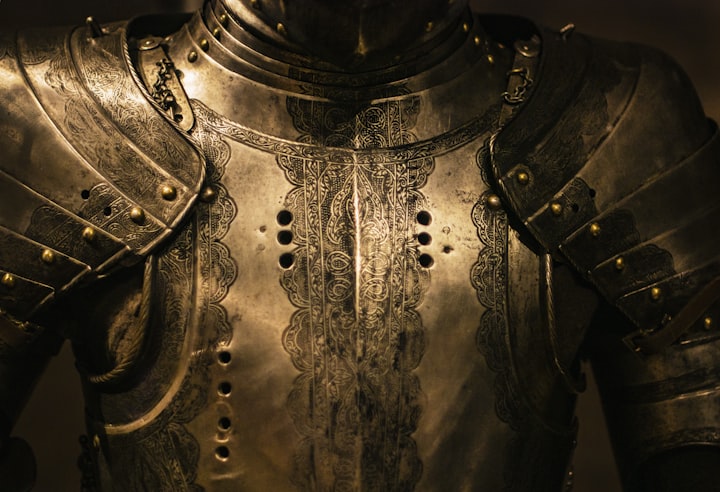The Best Feats for Artificers in Dungeons and Dragons (D&D) Fifth Edition (5E)
A List of the Strongest Choices for a Powerful Artificer

The Artificer, released in Tasha’s Cauldron of Everything, is a class whose strength comes from their ability to provide a diverse range of magical abilities to their party. Their spells and class features rely on a strong Intelligence score, which means that is your priority above all else. Once that has been achieved, Artificers should choose feats that will increase your skill abilities, provide extra utility and aid your abilities in unique ways.
Skilled:
First and Foremost, while an Artificer is a spellcasting class, it is not a Full Caster, and it leans closer to the Skill Monkey category than most casters. Because Artificers begin with proficiency in tools like Thieves Tools and Tinkerer’s Tools as well as a couple bonus tools, and because an Artificer needs, by the book, to use Tools to cast their spells. Gaining extra proficiencies in tools to have even more in combat and out of combat utility is helpful. Skilled is also helpful in order to gain more of the Knowledge skills (Arcana, History, Nature, Religion) as your high Intelligence is likely to make you the best in your party at those skills. And as we all know, Knowledge is power.
Observant:
Observant gives you a nice +1 to Intelligence, but it also allows you to read lips of any creature that speaks a language you understand. In addition you gain a +5 to both passive Wisdom (Perception) and passive Intelligence (Investigation) checks, both of which are extremely important to spotting problems, disarming traps and searching rooms for loot.
Elemental Adept:
This feat is handy if you often choose a specific element for your spell attacks, to make your spells stronger and more useful. It allows you to reroll your lower damage dice as well as cut through the resistances to your elemental damage. This is especially useful at higher levels when resistances become more and more prevalent.
Fey Touched:
Fey Touched gives you a +1 to intelligence and allows you to use the spell Misty Step as well as another spell from the school of Divination or Enchantment and allows you to cast these spells without using a spell slot once per long rest. This increases the number of spells per long rest you can cast, which can be low as an artificer and also boosts your Intelligence, both of which you need.
Spell Sniper:
Spell Sniper is for squishier Artificers who want to focus on hitting their opponents from even further away. First and foremost you gain an additional attack cantrip, and can be from other spell lists, which means you can grab things like Eldritch Blast. Spell Sniper also doubles the range of spells you cast that have an attack roll and gives the ability to ignore 1/2 and 3/4 cover with those attack spells, which is quite useful! Artificers specialize in long range attacks such as the ones Spell Sniper makes useful.
Warcaster:
This is basically a go-to for any fullcaster, it allows you to hold things while casting, even if your hands are full, it allows you to make Attacks of Opportunity with a spell as a reaction and it gives advantage on Constitution saves to avoid losing Concentration, which is certainly the most important part. In any campaign that has a fair level of combat or higher, Warcaster is potentially the first feat any full caster should get simply because of the value of not losing concentration over the course of a fight.
Healer:
Choosing Healer may not be the most popular choice for the kinds of artificers that like to blow stuff up. But, it gives proficiency in the Healer’s Kit, allowing them to stabilize their allies and give them one hit point until they can be properly healed. It can also be used to actually heal a creature by taking an action. If your party doesn’t have a dedicated healer, or the cleric is busy, having this kit can be quite useful.
Lucky:
This is probably the most banned feat per table for a reason, but it is also extremely good. Taking this feat gives you 3 luck points that allow you to roll an extra d20 when you make an attack roll, ability check or saving throw, or to make an enemy reroll. It’s like having the ability to give yourself advantage or an enemy disadvantage, because of this it is extremely handy. You have to decide to use Luck before you know the outcome of the die, but after you roll it, so if you have a shitty roll or an enemy has a good one, it is very easy to assume the outcome and use Lucky.
If you like this article or any others I have written, consider liking, subscribing, tipping or pledging here on Vocal as it really helps me continue writing!
And that's all! If you're looking for the best feat choices for any other class, simply follow the links below!
About the Creator
Theo James Taylor
Writer, MCU lover, and HUGE RPG nerd (but especially D&D). I have been a ghostwriter for blogs and other publications for 5 years now, but love the freedom Vocal gives me. You can find me DMing an outrageous Homebrew Campaign every Monday!






Comments
There are no comments for this story
Be the first to respond and start the conversation.